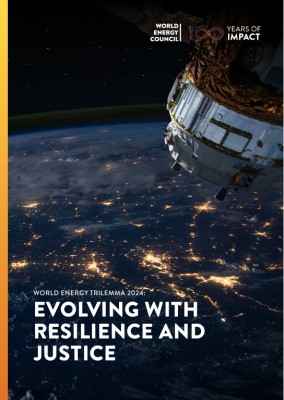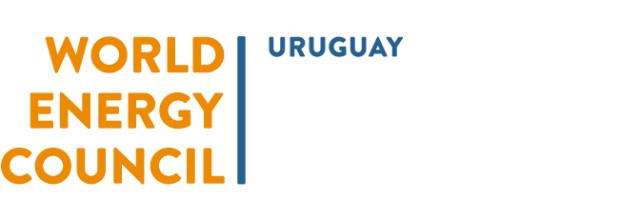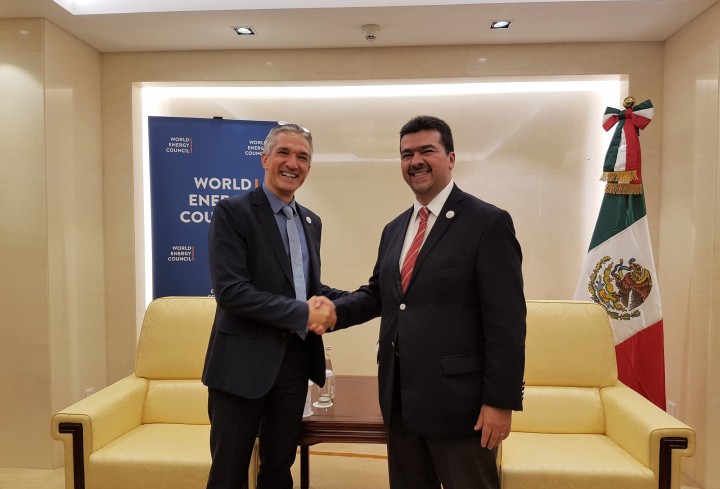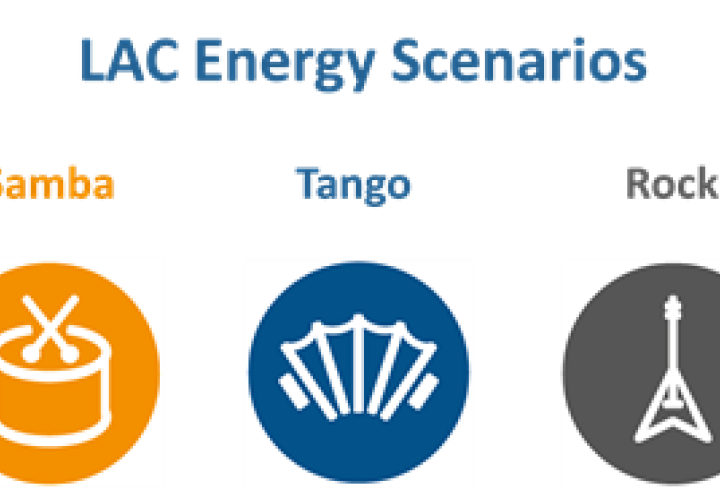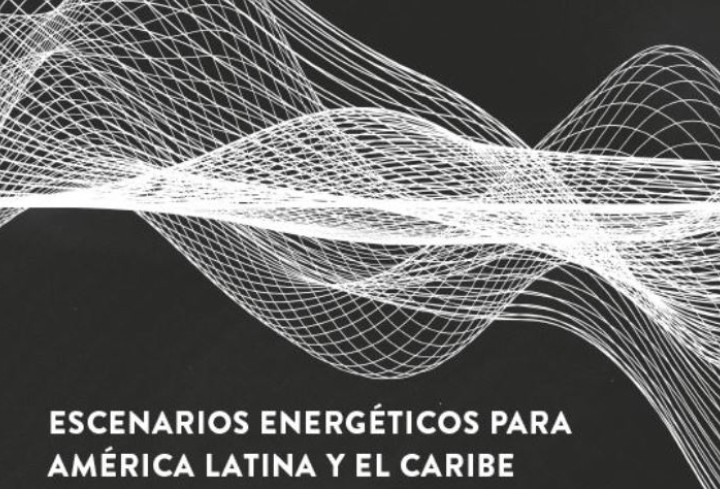The Uruguay National Committee aims to promote sustainable energy development in Uruguay, as a part of the World Energy Council’s energy vision. As a member of the World Energy Council network, the organisation is committed to representing the Uruguayan perspective within national, regional and global energy debates. The committee includes a variety of members to ensure that the diverse energy interests of Uruguay are appropriately represented. Members of the committee are invited to attend high-level events, participate in energy-focused study groups, contribute to technical research and be a part of the global energy dialogue.
Enzo Melani is a seasoned professional specialising in renewable energy and energy efficiency. He is the Director of ERGO in Uruguay, a consultancy firm focused on sustainable energy solutions. With over a decade of leadership, he holds a Master’s in Renewable Energy and has managed prominent photovoltaic and wind energy projects.

ENERGY IN URUGUAY
ENERGY ISSUES IN MOTION
The 2025 Uruguay Energy Issues Map illustrates how energy issues in the country are continually evolving, closely reflecting the country's dynamic energy landscape.
Compared to the previous year, several similarities are worth highlighting. Notably, both the Top Critical Uncertainty (TCU) and the Top Action Priority (TAP) remain unchanged.
The TCU continues to center on Future Fuels and Infrastructure, reflecting ongoing uncertainties regarding market dynamics and infrastructure development for emerging energy vectors such as green hydrogen and its derivatives. These technologies are positioned at the core of Uruguay’s Second phase of the Energy Transition, as outlined in the Green Hydrogen and Derivatives Roadmap (2023).
Similarly, the TAP remains Transmission Grids, signaling the country’s sustained focus on strengthening its national electric grid to meet the expected increase in electricity demand. This emphasis is closely linked to the government’s 2024 Indicative Expansion Plan for the Electric Generation Park for the 2024-2043 period, which assesses the yearly incorporation of solar, wind, and thermal capacity under different demand growth scenarios.
Turning to the changes revealed by the survey, notable shifts in the energy agenda priorities and concerns arise.
Demand Growth emerges as a new priority, an issue closely linked to the need for improved transmission infrastructure. Electric vehicle sales in Uruguay surged by 310% in 2024 compared to 2023, a trend expected to persist, driving increased electricity demand from the transport sector. The rising adoption of electric vehicles introduces decentralised batteries into the energy system. Consequently, Energy Storage has emerged as the second most critical uncertainty, as the country faces the challenge of implementing new strategies such as Vehicle-to-Grid (V2G) integration.
Another important trend is the heightened uncertainty regarding Access to Capital and Global Finance for a Just Energy Transition. This reflects growing concern about securing financing for energy transition projects amidst a shifting global context characterised by protectionist policies, geopolitical tensions, and setbacks in the climate agendas of key countries.
Finally, Big Data and AI have seen a decrease in perceived uncertainty alongside a rise in impact consideration. This shift may be linked to a recent milestone: the 2024 government approval for the construction of Uruguay’s first Google data center. At the same time, uncertainty has decreased as understanding has grown and concrete applications are beginning to emerge.
FROM BLIND SPOTS TO BRIGHT SPOTS
To address the challenges of sustainable development, it is essential to identify the areas where action is most urgently needed, and yet often overlooked.
Uruguay’s Energy Issues Monitor suggests that topics such as the food-energy-water nexus, climate justice, and ecosystem restoration are currently not prioritised, despite their relevance for long-term sustainability. Addressing these blind spots requires integrating these aspects into national energy planning, promoting a just transition, and incorporating broader environmental considerations beyond greenhouse gas emissions.
Another significant blind spot is the progressive loss of revenue from fossil fuel taxes, which has not yet been adequately addressed in national energy strategies. With electric vehicle sales quadrupling in 2024 and reaching an 8.8% market share of 2024 vehicle sales, it is critical to anticipate and design compensation measures to ensure the sustainability of public finances in a scenario of widespread transport electrification.
In addition, balancing energy affordability for low-income households with climate change objectives remains a big challenge. Subsidies for liquefied petroleum gas (LPG), a critical energy source for vulnerable sectors, create a tension between short-term social protection goals and long-term decarbonisation targets. Addressing this challenge will require designing equitable transition pathways that gradually reduce fossil fuel reliance while safeguarding energy access for the most vulnerable populations.
Having explored the overlooked issues, it is now time to highlight the positive examples that Uruguay has already set in motion, showcasing the country's successful initiatives towards a more sustainable future.
Uruguay's experience in renewable-based electrification remains a global benchmark, not only due to the high share of renewables in its power matrix but also for taking a step further by promoting the electrification of various demand sectors.
This achievement was largely the result of strong collaboration between the public and private sectors, as well as the commitment of the political system, which established energy policy as a true State policy. This commitment was formalised through a multi-party agreement covering the period 2008–2030, providing clear signals to all stakeholders about the country's chosen path in the energy sector.
The transformation involved major investments, job creation, local capacity building, and more decentralised energy generation, leading to a more resilient, efficient, and sustainable power system with over 90% renewables in recent years — all while improving energy efficiency across all demand sectors.
ADDRESSING CRITICAL UNCERTAINTIES TO BALANCE THE WORLD ENERGY TRILEMMA
Like many countries, Uruguay faces a range of critical uncertainties and action priorities that affect its progress across the three pillars of the World Energy Trilemma. Below are some of the key issues identified for the country that reflect the main insights shaping Uruguay’s energy outlook and highlight their impact on the different dimensions of the Trilemma.
Acknowledgements
Uruguay Member Committee
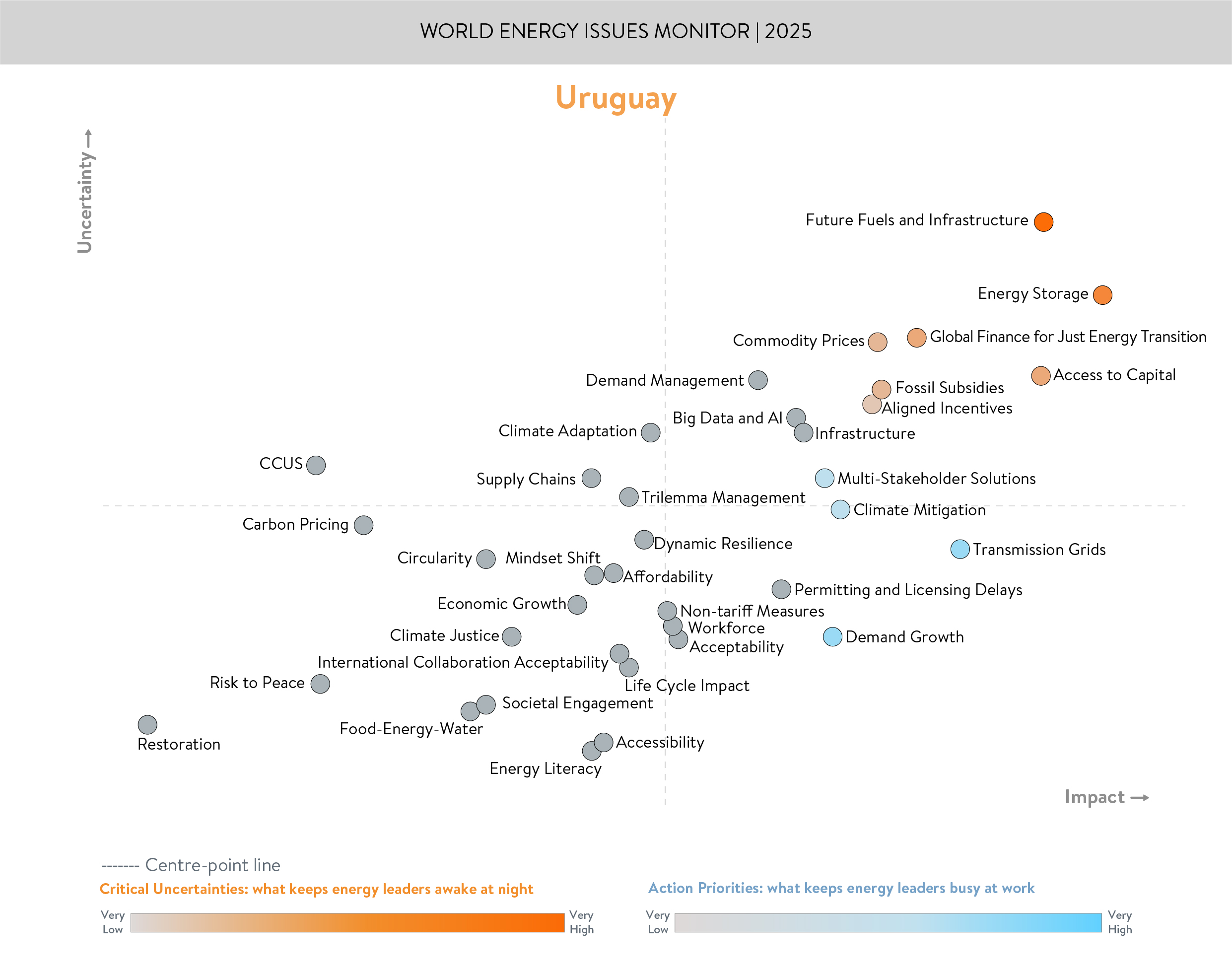
Downloads
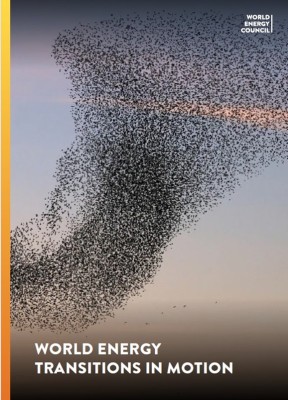
World Energy Issues Monitor 2025
Download PDF
Uruguay Energy Issues Monitor 2025 Country Commentary
Download PDF